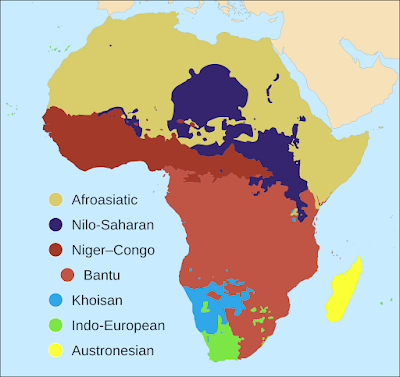Implications for Uganda Following Potential Removal from AGOA Trade Deal
 |
| Official Launch of AGOA Exporters Association, 2019 (Photo Courtesy: Ministry of Trade Industry and Cooperatives) |
US President Joe Biden has signalled his intention to terminate Ugandan exports to the US under the African Growth and Opportunity Act (AGOA). This decision, rooted in allegations of human rights violations, has the potential to reshape Uganda's economic landscape and its relationship with one of its most significant trade partners.
Understanding AGOA
The African Growth and Opportunity Act (AGOA) is not just another piece of legislation; it represents a cornerstone of US-Africa trade relations. Approved by the U.S. Congress in May 2000, AGOA's primary objective was to provide a much-needed boost to the economies of sub-Saharan Africa. By enhancing economic relations between the United States and the region, it aimed to create a win-win situation: African countries would gain better access to the vast US market, and the US would strengthen its economic ties with a rapidly developing region.
Initially set for a 15-year duration, the success and potential of AGOA led to its extension in 2015 for another decade, ensuring its provisions until 2025. Conceptualized by Congressman Jim McDermott and signed into law by then-President Bill Clinton, AGOA was more than just a trade deal. It was a commitment, a promise that the US would play a role in the economic upliftment of Africa. The act offers trade preferences for quota and duty-free entry into the U.S. for certain goods, expanding the benefits under the Generalized System of Preferences (GSP) program.
Uganda's Journey with AGOA
For Uganda, a country rich in culture, resources, and potential, AGOA opened doors that were previously challenging to access. Uganda has been actively supplying the US market with a diverse range of products, from the aromatic beans of its coffee to the intricate designs of its crafts. Vanilla, chocolate, tea, textile, and dried fruits have also found their way from Uganda to the shelves of American stores.
In terms of numbers, the growth is evident. In the financial year 2018/19, Uganda's exports to the US, facilitated by AGOA, were valued at a modest $1 million. However, the subsequent years saw remarkable growth, with the figure reaching $3.4 million in 2019/2020 and an impressive $5.1 million by the end of 2021.
Yet, the journey has been far from smooth. While the numbers show promise, they also hint at the vast untapped potential. Stakeholders, including exporters and association heads, have voiced concerns over the full potential of AGOA not being realized. Very few companies in Uganda are exporting to the US under AGOA. With the vast resources and potential that Uganda possesses, the country should be a powerhouse in AGOA exports.
Challenges and Missed Opportunities
Despite the opportunities that AGOA presents, Uganda has faced its share of challenges. From meeting the stringent quality standards required by the US market to navigating the complexities of international trade, Ugandan exporters have had to overcome numerous hurdles. The role of local bodies, such as the Uganda National Bureau of Standards (UNBS) and the Uganda Exports Promotion Board (UEPB), has come under scrutiny, with stakeholders highlighting the need for better certification and value-addition processes.
Furthermore, while AGOA has been instrumental in boosting exports, it has also been criticized for not being inclusive enough. As Meg Jaquay, chairperson of the AGOA Exporters Association – Uganda, pointed out, the approach has been focusing on a limited range of products and not fully harnessing the diverse potential of Uganda.
Implications of Uganda's Removal
The potential removal of Uganda from AGOA is not just a matter of lost revenue; it's about the future trajectory of Uganda's economy. The growth in exports, as seen in recent years, might face a sharp decline. Industries that have heavily relied on AGOA for export growth, such as the apparel industry, could see significant job losses, affecting thousands of Ugandan families.
Beyond the immediate economic impact, the removal could deter foreign investments. Without preferential access to the US market, Uganda might become a less attractive destination for investors. This could further strain Uganda's trade relations, not just with the US but also with other partners who might question the country's commitment to human rights and international standards.
Moreover, the removal could have a cascading effect on related industries. For instance, the growth in exports had led to an increase in demand for local products, benefiting farmers and local producers. A decline in exports could affect these ancillary sectors, leading to a broader economic downturn.
Moreover, Biden's letter on AGOA comes shortly after a US government advisory that drew the attention of different U.S. entities, including businesses, academic institutions, and health service providers, to the potential risks of operating in Uganda. The advisory highlighted purported risks stemming from prevalent corruption, significant human rights concerns, including violence against various groups and the recent enactment of the Anti-Homosexuality Act in 2023.
While AGOA has been a beacon of hope and opportunity for Uganda, the potential removal from this trade deal could have far-reaching implications. While the immediate implications might be challenging for Uganda's economic landscape, the long-term impact will depend on how both countries navigate their diplomatic relations and how Uganda addresses the concerns raised.
_WITH_JOURNALISTS_AT_THE_6TH_ZIONIST_CONGRESS._SEATED_NEXT_TO_HIM_IS_Z._WERNER,_EDITOR_OF_THE_ZIONIST_PAPER,_DIE_WELT._%D7%AA%D7%90%D7%95%D7%93%D7%95%D7%A8_%D7%94%D7%A8%D7%A6.jpg)

Comments
Post a Comment